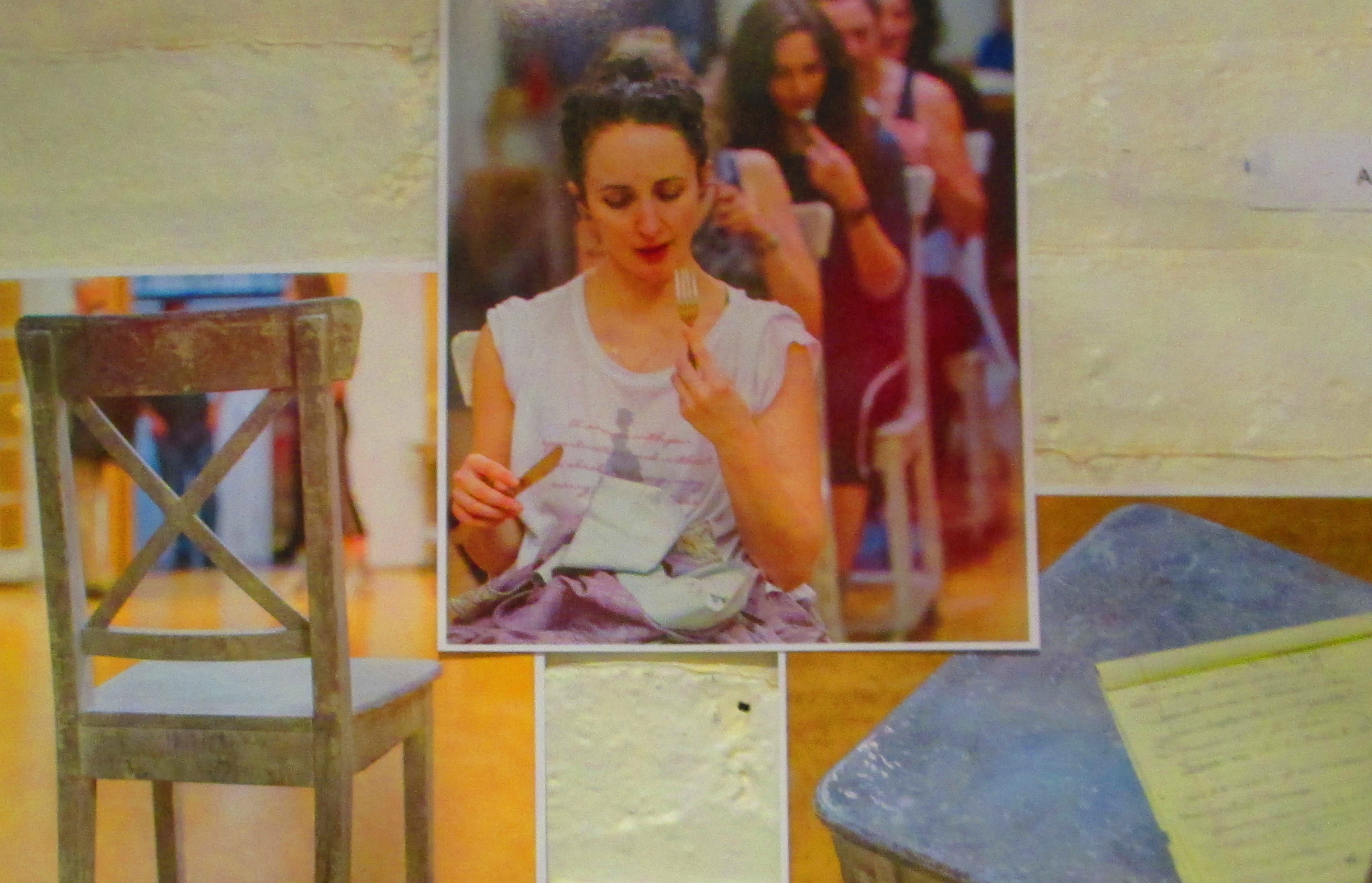To put Jane Austen on stage is to make sensible the implicit theatricality of her novels. To be Kate Hamill, adapting Sense and Sensibilty as SENSE & SENSIBILITY, and acting its principal role, is to layer it further. To be Bedlam doing it at The Gym at Judson, with a flair for double-casting and Shakespearean allusion, is to deepen it more. To see it is to plunge into a state of mimetic wonder and stimulated thought. To reflect on it after is to revive its pleasures, to hearten anew to its ingenuity and intellectual heft.
This is a smart production, in the best sense of the word, “well put together,” as might be said of an attractive person, with wit, sharpness and a critical eye, and a sensibility that overlooks not the affect of theatrical experience. There isn’t a place where Hamill’s scripting of the 1811 novel ends and Eric Tucker’s directing of it begins. Neither of them (including her as an actor), nor anyone in the company, hesitates at a point of transition. Taking a wig on or off turns one man in another; a door reversed, on John McDermott’s set, is a whole new home; what makes sense now didn’t, then. The poster image, echoed on the program cover (passed out afterward), suggests the show’s mimetic spirit: a woman in period attire, with the head of a horse, and on her feet – roller skates.
Past and present, and probably the future, blur, in these juxtapositions, with paradoxical precision. The cast doffs the rehearsal clothes they start in for a period look, partial at first, that gets fuller as it goes on, an attitude toward history reminiscent of Caryl Churchill’s Top Girls or Cloud Nine (Angela Huff provides the costumes). A scene in nightclothes plants the seed, à la Peter Greenaway, of historical costume as fetish: the narrow line walked, in period theater, between nostalgia and decadence. Austen herself alludes to Shakespeare, an invitation that Bedlam accepts with zeal. Hamlet’s most famous soliloquy is part of it, along with the plot of Measure for Measure. There’s a comedy of errors buried in the dramaturgy, which Jason O’Connell, cast as both Edward and Robert Ferras, exhumes with the wry shovel of his pursed lips. Stephen Wolfert, a veritable Proteus in the roles he puts on, at one point plays a horse – named Queen Mab – muzzling oats and stamping hooves, all the while on two feet in 19th-century men’s clothing. Sense becomes, for a long moment, Midsummer, and Sensibility a Dream, with Romeo looking on.
Bedlam’s wizardry at shifting from one reality to another brings out the Renaissance strain in Austen’s comedy, which is, already, of more than one kind, Romantic and also of Manners. It’s about sisters seeking mates in order to secure a status, and men doing the same, its confusions of identity steeped in the complexities of gender and class, and the social realities that enforce the roles. But it is also, as Bedlam palpably knows, about lived experience, in which love makes economic sense but can’t be reduced, in the heart of the person, to social form.
The women are key to this, but the men aren’t, in Austen or in Bedlam, denuded of feeling. John Russell’s Willoughby, for one, is truly anguished at the romantic deception he practices on Marianne Dashwood. Hamill, as Marianne, has the accumulated energy of an unlit firecracker; that she wrote, or half-wrote, every line she speaks is there, somehow, in her acting. Her authoritative confidence infuses the whole giddy act of Bedlam’s storytelling. Laura Baranik, Andrus Nichols, Samantha Steinmetz, Jessica Frey, Gabra Zackman and Edmund Lewis are, with Russell, Hamill and Wolfert, vigorously physical, their acting a mummers’ dance of mannered desire, their faces a concert of pert lips and perplexed brows. They orchestrate a tension between the allure of style and the ideologies of sex and class it represents, resolving the charm of the period and its inequities, the elegance of manners and the crudity of those who make them.
SENSE & SENSIBILITY continues through April 17, takes a break until June 17, and runs through Nov. 20, 2016. Click here for tickets.
